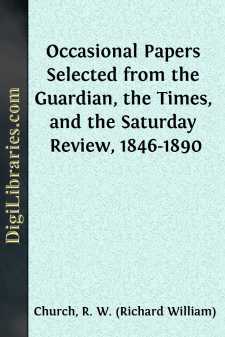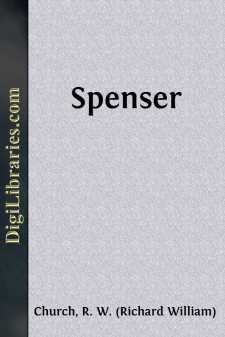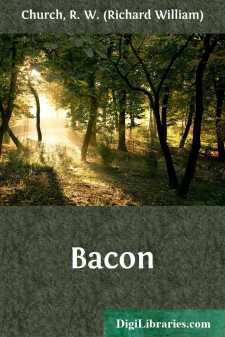Categories
- Antiques & Collectibles 13
- Architecture 36
- Art 48
- Bibles 22
- Biography & Autobiography 813
- Body, Mind & Spirit 142
- Business & Economics 28
- Children's Books 15
- Children's Fiction 12
- Computers 4
- Cooking 94
- Crafts & Hobbies 4
- Drama 346
- Education 46
- Family & Relationships 57
- Fiction 11828
- Games 19
- Gardening 17
- Health & Fitness 34
- History 1377
- House & Home 1
- Humor 147
- Juvenile Fiction 1873
- Juvenile Nonfiction 202
- Language Arts & Disciplines 88
- Law 16
- Literary Collections 686
- Literary Criticism 179
- Mathematics 13
- Medical 41
- Music 40
- Nature 179
- Non-Classifiable 1768
- Performing Arts 7
- Periodicals 1453
- Philosophy 64
- Photography 2
- Poetry 896
- Political Science 203
- Psychology 42
- Reference 154
- Religion 513
- Science 126
- Self-Help 84
- Social Science 81
- Sports & Recreation 34
- Study Aids 3
- Technology & Engineering 59
- Transportation 23
- Travel 463
- True Crime 29
Occasional Papers Selected from the Guardian, the Times, and the Saturday Review, 1846-1890
Description:
Excerpt
I
MR. GLADSTONE ON THE ROYAL SUPREMACY[1]
[1]
Remarks on the Royal Supremacy, as it is Defined by Reason, History,
and the Constitution. A Letter to the Lord Bishop of London, by
the Right Hon. W.E. Gladstone, M.P. for the University of Oxford.
Guardian, 10th July 1850.
Mr. Gladstone has not disappointed the confidence of those who have believed of him that when great occasions presented themselves, of interest to the Church, he would not be found wanting. A statesman has a right to reserve himself and bide his time, and in doubtful circumstances may fairly ask us to trust his discretion as to when is his time. But there are critical seasons about whose seriousness there can be no doubt. One of these is now passing over the English Church. And Mr. Gladstone has recognised it, and borne himself in it with a manliness, earnestness, and temper which justify those who have never despaired of his doing worthy service to the Church, with whose cause he so early identified himself.
The pamphlet before us, to which he has put his name, is the most important, perhaps, of all that have been elicited by the deep interest felt in the matter on which it treats. Besides its importance as the expression of the opinion, and, it must be added, the anxieties of a leading statesman, it has two intrinsic advantages. It undertakes to deal closely and strictly with those facts in the case mainly belonging to the period of the Reformation, on which the great stress has been laid in the arguments both against our liberty and our very being as a Church. And, further, it gives us on these facts, and, in connection with them, on the events of the crisis itself, the judgment and the anticipations of a mind at once deeply imbued with religious philosophy, and also familiar with the consideration of constitutional questions, and accustomed to view them in their practical entanglements as well as in their abstract and ideal forms. It is, indeed, thus only that the magnitude and the true extent of the relations of the present contest can be appreciated. The intrinsic greatness, indeed, of religious interests cannot receive addition of dignity here. But the manner of treating them may. And Mr. Gladstone has done what was both due to the question at issue, and in the highest degree important for its serious consideration and full elucidation, in raising it from a discussion of abstract principles to what it is no less—a real problem of English constitutional law.
The following passage will show briefly the ground over which the discussion travels:—
The questions, then, that I seek to examine will be as follow:—
1. Did the statutes of the Reformation involve the abandonment of the duty of the Church to be the guardian of her faith?
2. Is the present composition of the appellate tribunal conformable either to reason or to the statutes of the Reformation, and the spirit of the Constitution as expressed in them?
3. Is the Royal Supremacy, according to the Constitution, any bar to the adjustment of the appellate jurisdiction in such a manner as that it shall convey the sense of the Church in questions of doctrine...?




